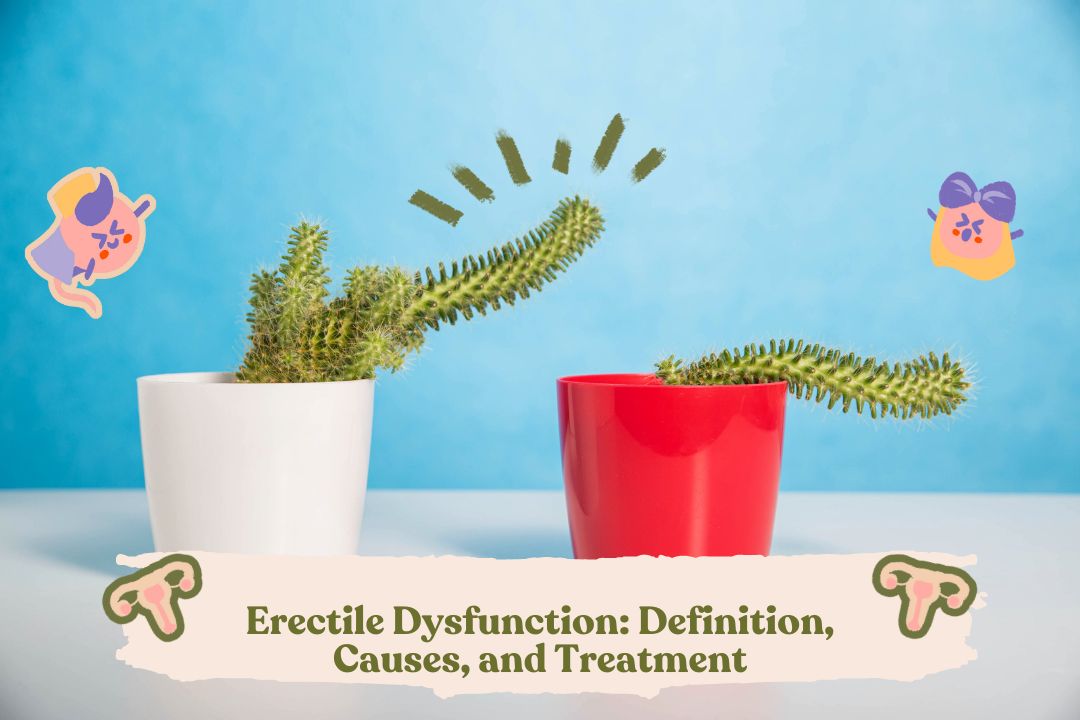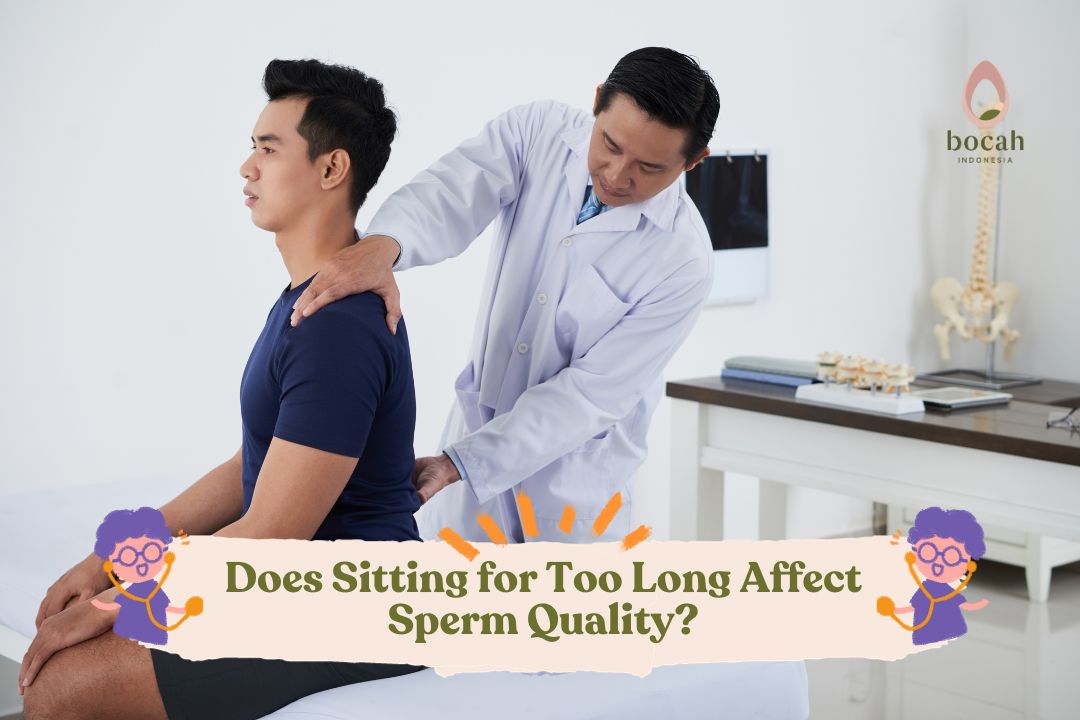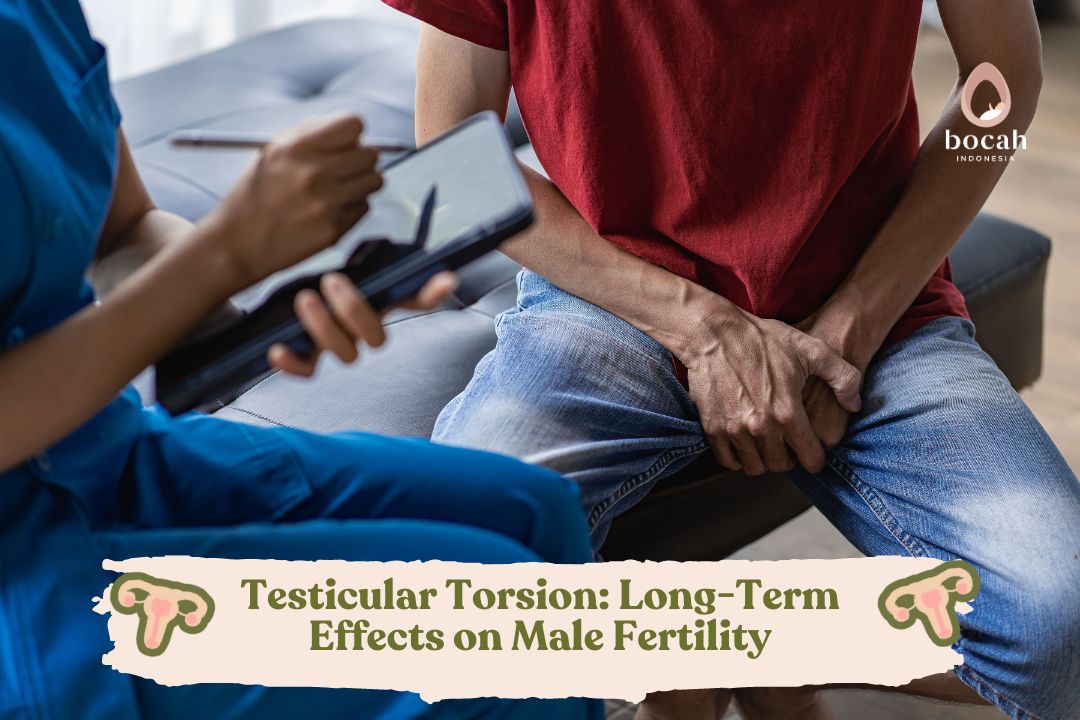Overcoming Erectile Dysfunction for Long-Lasting Relationships

Mom and Dad’s relationship may be strained due to erectile dysfunction. Don’t worry; find out how to overcome it through this review.
Erectile dysfunction or impotence is a condition where the penis cannot achieve or maintain an erection when sexually aroused.
This condition often occurs, especially in men over the age of 40. A study published in the American Journal of Medicine in 2007 noted an increased risk of impotence with age.
However, Dads don’t need to worry; erectile dysfunction can be treated! There are various treatments that can help address this issue; find out the right one for you, Dad.
Symptoms of Erectile Dysfunction
Symptoms of erectile dysfunction can vary but generally involve difficulty in achieving or maintaining an erection firm enough for satisfying sexual intercourse. Here are some common erectile dysfunction symptoms:
Tanya Mincah tentang Promil?
Difficulty in achieving an erection despite receiving adequate sexual stimulation.
Inability to maintain an erection throughout sexual intercourse or experiencing loss of erection during sexual activity.
Reduced sexual desire or interest in sexual activity.
Difficulty in achieving ejaculation or orgasms that can affect sexual satisfaction.
Often experiencing feelings of embarrassment, hopelessness, or even depression due to the inability to achieve or maintain an erection.
Erectile dysfunction can also contribute to problems related to male infertility as it can lead to difficulties in achieving the necessary ejaculation for fertilization.
Symptoms of erectile dysfunction can affect the quality of a relationship with a partner, causing disharmony and stress in the relationship.
Causes of Erectile Dysfunction
Here are some conditions that can cause erectile dysfunction:
Unhealthy Lifestyle
Dad, did you know that unhealthy habits like smoking, alcohol consumption, lack of sleep, or frequent staying up late can cause problems with blood vessels and reduce blood flow to the penis? This can make it difficult for you to achieve and maintain an erection. In addition, poor dietary habits, excess weight, and lack of exercise also make you more vulnerable to erectile dysfunction.
Penis Disorders
There are several conditions that can cause abnormalities in the penis, such as Peyronie’s disease, epispadias, and penile injuries that can lead to erectile dysfunction. These conditions can trigger disturbances in blood flow and nerves, making it difficult for the penis to erect.
Psychological Disorders
Not only physical disorders, but psychological disorders such as anxiety, depression, PTSD, or excessive worries about a partner’s sexual activity can also increase the risk of erectile dysfunction in men.
Cardiovascular Diseases
Cardiovascular diseases such as heart conditions that can affect the ability to pump blood and trigger erectile dysfunction. This is because blood flow to the penis is reduced, making it impossible for men to achieve an erection. In addition, other cardiovascular diseases such as stroke and atherosclerosis can also cause erection difficulties.
Hormonal Disorders
Sexual drive or desire is regulated by sex hormones called testosterone. When testosterone levels decrease, you may have difficulty achieving sexual satisfaction and are at risk of erectile dysfunction. Some other conditions caused by hormonal disorders include diabetes, thyroid disorders, and hypogonadism, which can lead to nerve disorders that increase the risk of impotence.
Side Effects of Medications
Some medications that can affect impotence in men, such as antihypertensives, antidepressants, antipsychotics, sedatives, and chemotherapy for cancer, can cause side effects that affect blood flow to the penis.
Prostate or Bladder Surgery
If you’ve had surgery on the prostate or bladder, you’re at greater risk of experiencing erectile dysfunction. This occurs because blood vessels or nerves around the penis may be damaged as a result of the surgery. However, symptoms may temporarily or permanently reappear after the operation.
Treatment for Erectile Dysfunction
Erectile dysfunction can be treated through various approaches, including medical interventions, lifestyle changes, and therapy. Here are some treatment methods to address erectile dysfunction or impotence:
Prescription Medications
PDE5 inhibitors are medications such as sildenafil (Viagra), tadalafil (Cialis), vardenafil (Levitra), and avanafil (Stendra). These drugs can help improve blood flow to the penis and strengthen erections.
Alprostadil Treatment, available in the form of injections (Caverject, Edex) or suppositories (MUSE), helps increase blood flow to the penis. All of these medications require a doctor’s prescription.
Hormone Therapy
If erectile dysfunction is caused by low testosterone levels, testosterone replacement therapy may be prescribed to increase hormone levels.
Penis Pump (Vacuum Erection Device)
A penis pump can create pressure around the penis to draw blood into it, thus creating an erection. After achieving an erection, a ring (constrictor) is placed at the base of the penis to maintain it.
Penile Implants
Surgery to implant a penile prosthesis is a viable option if erectile dysfunction does not respond to other treatments. These implants can provide manually controlled erections.
Lifestyle Changes
Here are some healthy lifestyle changes that Dad should implement to treat erectile dysfunction.
Maintain a healthy diet. Obesity can increase the risk of erectile dysfunction, so maintaining an ideal body weight can help.
Quit smoking. Smoking can damage blood vessels and affect blood flow to the penis.
Regular exercise. Regular physical activity can improve cardiovascular health and reduce the risk of erectile dysfunction.
Stress management. Stress can play a role in erectile dysfunction, so stress management techniques like meditation or yoga can help.
Adopting a healthy lifestyle is excellent for preventing other diseases, so even if erectile dysfunction has improved, maintaining a healthy life
Psychosexual Therapy
Here are some healthy lifestyle changes that Dad should implement to treat erectile dysfunction.
Maintain a healthy diet. Obesity can increase the risk of erectile dysfunction, so maintaining an ideal body weight can help.
Quit smoking. Smoking can damage blood vessels and affect blood flow to the penis.
Regular exercise. Regular physical activity can improve cardiovascular health and reduce the risk of erectile dysfunction.
Stress management. Stress can play a role in erectile dysfunction, so stress management techniques like meditation or yoga can help.
Adopting a healthy lifestyle is excellent for preventing other diseases, so even if erectile dysfunction has improved, maintaining a healthy life
Source:
- Cho, J.W. & Duffy, J.F. (2019). Sleep, Sleep Disorders, and Sexual Dysfunction. The World Journal of Men’s Health. 37(3), pp. 261–275.
- https://pubmed.ncbi.nlm.nih.gov/30209897/
- Krzastek, et al. (2019). Recent Advances in the Understanding and Management of Erectile Dysfunction. F1000 Research. 8, pp. 102.
- https://pubmed.ncbi.nlm.nih.gov/30740217/
- Lee, J., Tan, R., & Chung, E. (2017). Erectile Dysfunction Treatment and Traditional Medicine-Can East And West Medicine Coexist? Translational Andrology and Urology. 6(1), pp. 91–100.
- https://www.ncbi.nlm.nih.gov/pmc/articles/PMC5313309/
- Urology Care Foundation, American Urological Association (2018). What is Erectile Dysfunction?
- Mayo Clinic (2022). Diseases & Conditions. Erectile Dysfunction.
- Marks, J. Everyday Health (2020). What Is Erectile Dysfunction (ED)? Symptoms, Causes, Diagnosis, Treatment, and Prevention.
- Healthline (2022). Erectile Dysfunction (ED): Symptoms, Causes, Diagnosis, and Treatment.
- Nall, R. Healthline (2022). 5 Common Causes of Impotence.





